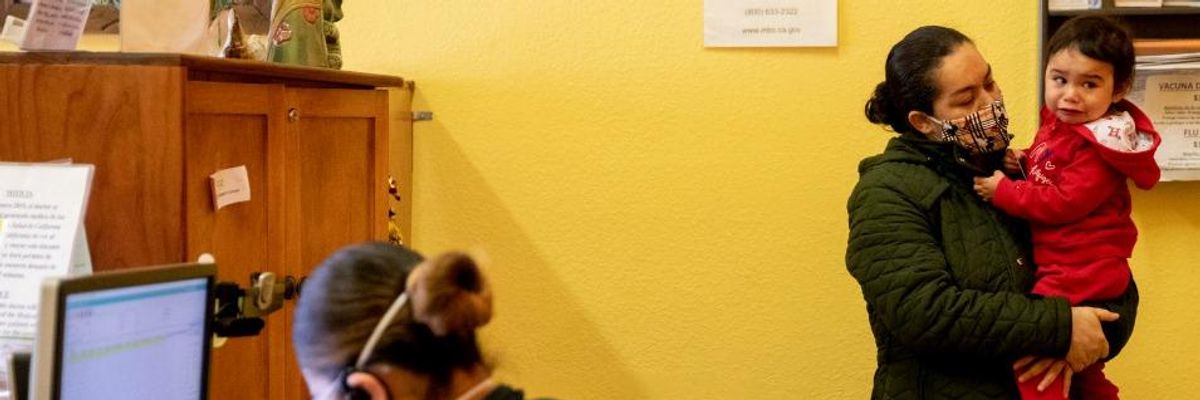On the Senate floor Wednesday, Majority Leader Mitch McConnell indicated once again that he has no intention of providing badly-needed aid to struggling families across the U.S. even as new research found that nearly two-thirds of households with children are having trouble making ends meet.
McConnell dismissed the Democratic Party's latest version of the HEROES Act as a "political stunt," making it clear that like the bill which passed in the House in May--which has now languished in the Senate for 138 days--the $2.2 trillion relief package which House Democrats unveiled on Monday is not likely to reach the millions of families who need it.
"As always, his priorities are appalling," Vanita Gupta, president of the Leadership Conference on Civil and Human Rights, tweeted, noting McConnell's determination to push through the confirmation of Judge Amy Coney Barrett--who has frequently ruled in favor of powerful corporations--to the U.S. Supreme Court.
McConnell's dismissal of the legislation--which includes a renewal of the $600-per-week enhanced unemployment benefits passed as part of the CARES Act in March, another round of $1,200 direct payments for most Americans, and aid for state and local governments--came amid the release of a new poll displaying the struggles of families across the country.
"The numbers of people in trouble, that is the shock. It's a very large number of people who can't pay the basics."
--Dr. Robert Blendon, Harvard T.H. Chan School of Public Health
NPR, the Robert Wood Johnson Foundation, and the Harvard T.H. Chan School of Public Health released the results of a survey taken in July and August of 3,400 adults including 1,000 with children at home, finding that 60% of respondents in the latter group have lost jobs or businesses or have otherwise had their incomes reduced since the coronavirus pandemic began in March.
Sixty-one percent of families reported having "serious financial problems" during the public health and economic crisis. Just over half of white families said they have been facing severe difficulties affording necessities like mortgages or rent, credit card bills, groceries, and medical expenses, while a higher share of people of color reported trouble making ends meet. Eight-six percent of Latino families and 66% of Black families said they are facing serious economic strife.
Among the millions of American households where at least one person has contracted Covid-19--of which "essential workers" in the healthcare, retail, food, and other public-facing industries are especially at risk--the effects of the economic crisis are being felt even more acutely, according to the survey. Ninety-four percent of families in which someone has had the disease reported serious financial problems and 84% said they have faced reduced income.
Researchers who conducted the survey expressed alarm that after the enhanced unemployment benefits and direct relief included in the CARES Act--relatively minor steps taken by the federal government compared to those taken in other wealthy countries, but ones that had a measurable, positive impact on poverty levels--families are still struggling to make ends meet as much as they are.
"The numbers of people in trouble, that is the shock," Dr. Robert Blendon, director of the study behind the poll and a professor at the Harvard T.H. Chan School of Public Health, told the New York Times. "It's a very large number of people who can't pay the basics."
Researchers who examined the study also raised concerns over the long-term impacts of the crisis on the children of families who are struggling, as school-age children face social isolation due to remote schooling while also coping with their parents' financial hardships.
"Could this course correct if everything goes back to school and everything opens up again in the next eight months to 12 months?" Anna Johnson, a developmental psychologist at Georgetown University who was not involved in the study, toldNPR. "Maybe. But [there are] going to have to be a lot of resources targeted just to these families to help them overcome what is probably a traumatic experience for them."

